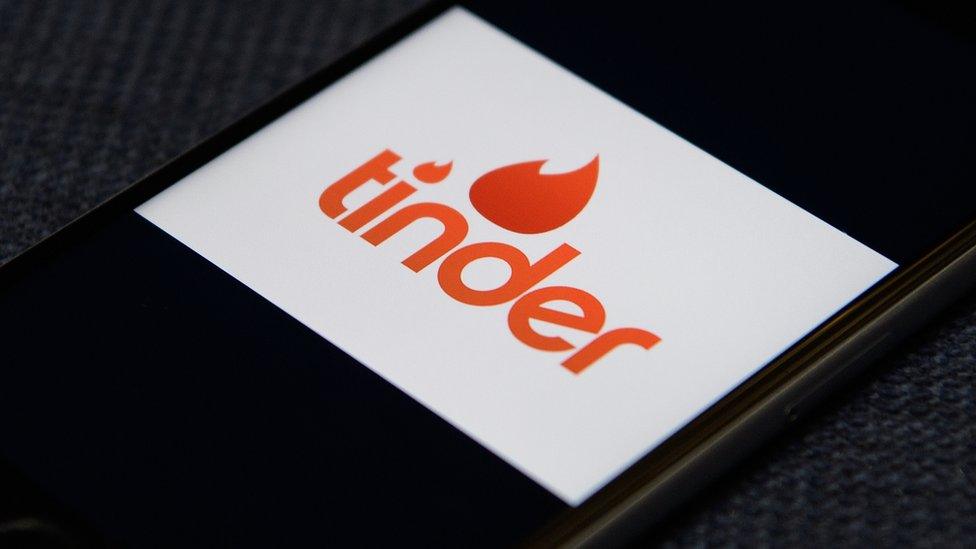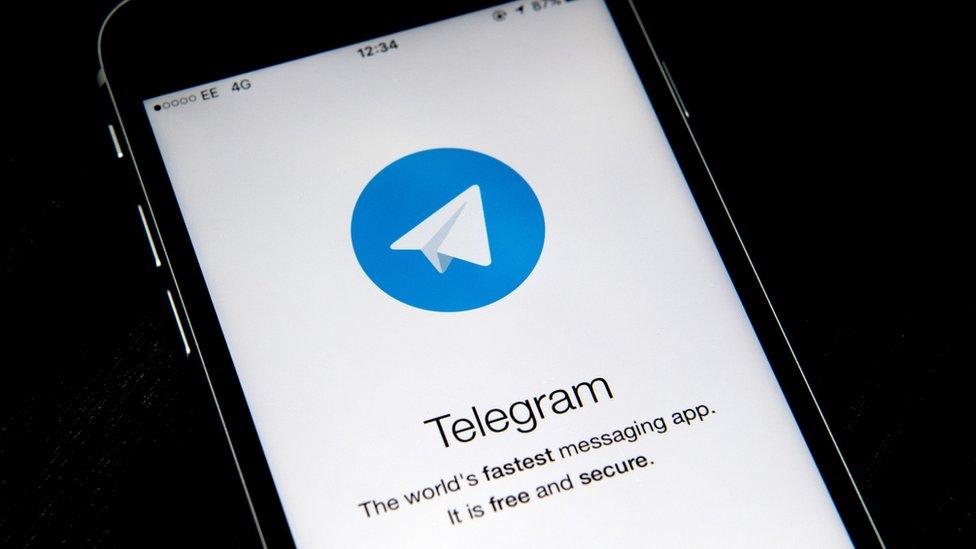Tinder faces Russian demand to share user data
- Published

Tinder says it has not handed any user-data to Russia's authorities
Russian authorities have told dating-app Tinder it will have to comply with requests to hand over messages and photos of its users in Russia.
Under recent Russian laws, 175 companies have been put on a register that requires them to store data for six months on Russian servers.
Companies that refuse, like the private messaging app Telegram, risk being blocked in Russia.
Tinder said it had "registered to be compliant".
However, it was adamant that "this registration in no way shares any user or personal data with any Russian regulatory bodies and we have not handed over any data to their government".
Who has been blocked so far?
The law requires any website or app on the register to provide local users' data on demand to intelligence servers such as the FSB internal security service.
When Telegram refused to hand over users' messages Russian authorities announced last year they were blocking the app. Users instead resorted to anonymous proxies or VPNs (virtual private networks) to continue accessing Telegram.
EXPLAINED: What is a VPN service?
Telegram founder Pavel Durov argued that the block was unconstitutional, but the FSB argued the app had been used by a suicide bomber in a deadly attack on an underground train in St Petersburg.
Job-sharing website LinkedIn was blocked in 2016 for failing to comply with the law.
Critics say the government is trying to crack down on the internet by stifling dissent and increasing censorship, but authorities say they are trying to prevent terrorism and cyber attacks.
Last month, President Vladimir Putin signed into a law a "sovereign internet" bill, designed to enable Russian authorities to sever the country's internet from the rest of the world.
While the left-right-swiping app said it had not handed over any of its users' data to Russia's communications authority, Roskomnadzor, it did not make clear how it would react to any future requests. Tinder is owned by Dallas-based Match Group in the US.
- Published17 April 2018
